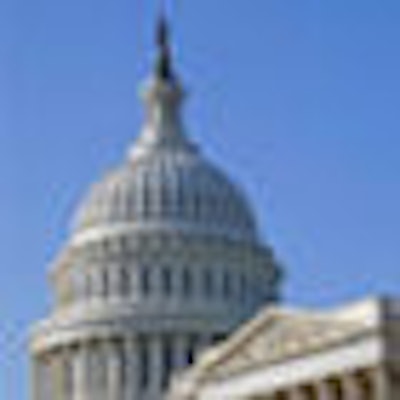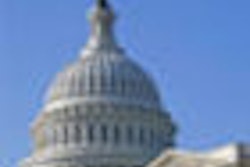
The healthcare reform bill introduced on the floor of the U.S. Senate Wednesday by Democrats would extend dental care to millions of currently uninsured children, set up new oral health surveillance programs, and train new dental professionals -- including new categories of midlevel providers in pilot programs. It would tweak many other aspects of oral healthcare in the U.S. as well.
Oral health experts were just beginning to analyze the 2,074 pages of the bill's dense legalese this week. But certain broad strokes are already clear.
The farthest reaching is a provision that requires all health insurance plans offered in new public exchanges to provide dental insurance for children. People would be eligible to participate in the exchanges if they don't currently have health insurance through an employer or public plan such as Medicare. Employers with 50 or fewer workers could participate.
Unlike a bill that passed in the U.S. House of Representatives that establishes one national exchange, the Senate leaves it up to the states to start their own exchanges. (Both bills include a government-run public plan in the exchanges, but the Senate lets states opt out.)
The Senate bill includes a tweak that separates it from the House bill: It would prohibit plans in the exchanges from requiring copayments or any other type of "cost sharing" for oral health preventive services. As interpreted by Danielle Grote Erbele, senior policy analyst for the Children's Dental Health Project (which worked with Senate staffers on the language), children could get services such as cleanings, exams, consultations, fluoride treatments, and sealants without their guardians having to pay anything above their premiums.
"It's great," Erbele said.
Among the bill's other provisions:
- Grants of $4 million would be issued for each of 15 "alternative dental health care providers demonstration projects." The midlevel providers studied could be community dental health coordinators, advance practice dental hygienists, independent dental hygienists, supervised dental hygienists, primary care physicians, dental therapists, dental health aides, or some new classification. They would be evaluated for their ability to "increase access to dental health care services in rural and other underserved communities."
- Standalone dental plans could participate in the public exchanges.
- The U.S. Centers for Disease Control and Prevention (CDC) would launch a five-year oral healthcare prevention campaign with an emphasis on community water fluoridation and dental sealants.
- The CDC would award demonstration grants to research methods of managing caries.
- The CDC would collect data at the level of tooth surfaces to monitor rates of oral health.
- Dental examination chairs and x-ray machines would have to be handicapped accessible within two years.
- Grants totaling $30 million for 2010 and "such sums as may be necessary" until 2015 would be authorized for schools that train general, pediatric, or public health dentists and dental hygienists.
- In a new "Public Health Services Track," the government would pay the tuition of at least 100 dental students a year, in exchange for their commitment to work with underserved populations.
The Senate bill lacks some provisions sought by dental organizations. Unlike the House bill, it doesn't strip insurance companies of their exemptions from federal antitrust regulations. It also doesn't raise Medicaid reimbursement for dentists, nor does it require that states provide adult dental benefits through Medicaid.
In addition, the bill includes provisions that some dental organizations have opposed. Some analysts fear that its tax on high-cost health insurance packages could cause employers to strip the packages of their dental benefits. Others worry that individuals won't be able to afford dental benefits on their own because it doesn't allow them to set aside enough money in flexible spending accounts.
Chances to amend the proposed legislation are already diminishing. The Senate bill merges two versions of healthcare reform, one crafted in the Health, Education, Labor, and Pensions (HELP) Committee and one in the Finance Committee, retaining all or most of the dental provision in the HELP bill.
If it passes on the floor of the Senate, it must be reconciled with a U.S. House of Representatives bill that covers the same territory. Then it's on to President Barack Obama.
Copyright © 2009 DrBicuspid.com



















